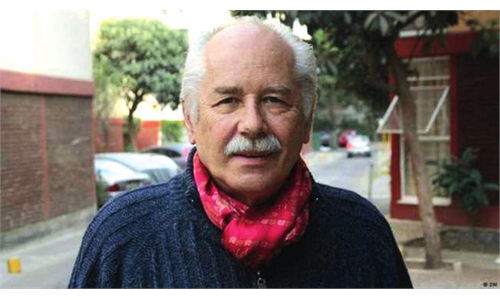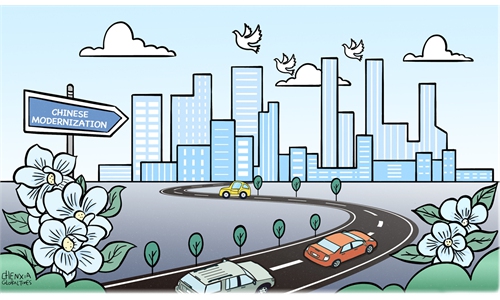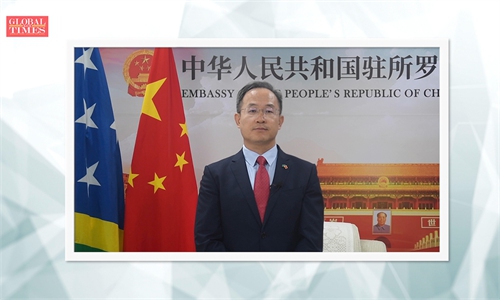Rural youngsters in China aim moving into the light of development

Photo: VCG
I sat in front of the window of a rural inn in Yuanyang, Yunnan Province, sipping local cloud tea while chatting with two girls at the front desk. Outside the window was a fantastic view of terraced rice fields. Under the setting sun, the fields were like irregularly cracked mirrors, reflecting their glorious color.The village where the inn is located is called Quanfu Zhuang Zhongzhai, a village of the Hani minority people. Because of the lack of writing in the past, many old Hani villages have no historical records, but Quanfu Zhuang Zhongzhai is different. Some villagers from a nearby ancient village moved here in the 1960s, therefore it has a well-documented written history and thus has become a model for rural settlement studies.
Like all Hani villages in the region it has leaped from being a thousand-year-old poor mountain village to a new period of modernization in recent years as part of the national poverty alleviation program, and one of the most significant changes is that all the children in the village have received compulsory education.
The two girls who manage the inn are both graduates of nine-year schools. One is the innkeeper's daughter. They are now both skilled in using internet technology to market online and often invite some online influencers to come over to shoot videos and do livestreaming broadcasts. One girl has been to Beijing and Shanghai to participate in some travel exhibitions.
However, the income from running the inn is not stable. When the terraces are flooded and harvested, the nightly rate will be very high, as more tourists are coming, but usually, there are few guests. The two girls told me that their families have terraces for growing rice and have enough food and clothing, and the money earned from the inn is mainly used to maintain the operation of the inn while subsidizing the family.
In terms of income, they are at the low end. As second-generation mountain villagers who have just emerged from poverty, they are at a relatively low level to begin their journey into modernity.
During my recent travels in the mountains of southwestern Yunnan, I have encountered many such young people. They desperately need stable employment and they usually do not set high goals for income.
This segment of young people is essential for the improvement of Chinese people's livelihood. The severest test of China's future development is how to enable these young people to climb up the slope slowly and step by step through their own efforts.
Local friends told me that the government is now targeting to increase investment in rural agriculture and tourism, and the county where Quanfu Zhuang Zhongzhai is located has established some vocational schools to create opportunities and space for these young people to find jobs.
The village's development is entrusted by the village collective to a professional company to manage and operate, and the proceeds are shared equally. Some young people have started to return after receiving vocational education.
When asked what future plans the two girls have, one said she wanted to study in the provincial capital, get a diploma in hotel management and come back to continue working in the tourism sector. The other said she hoped to get an accounting certificate. The common "ideal" of the two is to have money to set up a family and buy a suite in the county town or a larger city. They aspire to go out and live the life of an urban dweller.
They will almost certainly not let it slip from their hands easily when they touch the light of modernization. I see in these young people the potential of the Chinese economy.
The problem of creating jobs for young people at the bottom is universal. In countries like India and Brazil, I have gone into the slums to get a closer look at life there. What struck me the most was not the huge difference between poverty and affluence but the attitude of many young people there toward work and life. Many of them were impoverished and had lost the desire and energy to chase and seize the light.
Precise poverty alleviation in China has not only changed the appearance of poor villages like Quanfu Zhuang Zhongzhai, and transformed the "blood transfusion mechanism" into a "blood creation mechanism," but has also enabled the younger generation to receive modern education and have a broader vision. They have the ambition and opportunity to seize the light. This is the key to China's economic tenacity and the treasure of the nation's development.
The author is a senior editor with People's Daily, and currently a senior fellow with the Chongyang Institute for Financial Studies at Renmin University of China. dinggang@globaltimes.com.cn. Follow him on Twitter @dinggangchina




